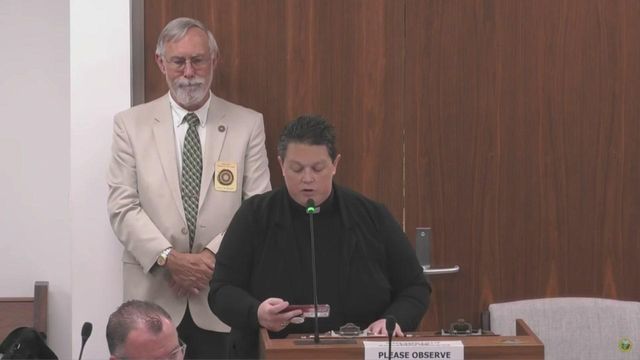NC State Online faculty put quality first

This article was written for our sponsor, NC State Online.
All online classes are not created equal. After many students were forced to pivot to remote learning during COVID-19, some felt burned by a lack of preparation.
At North Carolina State University, however, online learning is nothing new. In fact, the school has been offering remote and distance learning options since the days of VHS and educational television channels. Now, the university and its faculty continue to innovate and refine their online classes and programs to compete with some of the best in the country.
Several of N.C. State's online courses have even achieved recognition and certification from Quality Matters — a globally recognized organization leading the way in quality assurance in online and innovative digital teaching and learning environments.
N.C. State's online bachelor's degree completion program — Leadership in the Public Sector — has become the first program at N.C. State to become QM-certified, and one of eight in the nation to earn certification in the program design category. Ranked No. 14 in the country for best online bachelor's programs by "U.S. News and World Report," the faculty of this program have prioritized quality course design with flexibility and accessibility for students, all with a personal approach from faculty and staff.
"Essentially, someone from [QM] goes through your entire course. There are rubrics, standards, clear objectives and measurable outcomes so that when a student goes into your class, [students] know exactly what is expected, and it should all be evidence-based," said Tracy Appling, internship director and teaching assistant professor at the School of Public and International Affairs in the College of Humanities and Social Sciences.
"It is a big commitment by the faculty member to agree to go through the certification process, but the good thing is, N.C. State provides resources to assist faculty in readying their courses for official submission to QM."
Factors in official review by QM include everything from ensuring online materials are accessible for people with color blindness to creating a syllabus that outlines the exact expectations of the online course. Having a clearly structured course to maximize student outcomes and engagement is key.

"There needs to be organization and navigation features within that course so that students know exactly where to go and where to get started when they first enter the course. In doing so, it's a welcoming and supportive environment, where expectations are clear," said Bethanne Winzeler, assistant director of course quality at Digital Education and Learning Technology Applications at N.C. State. "The second thing we really focus on is alignment, so we spend a significant amount of time making sure that all of the content in the assessments of their course support what faculty want the students to do."
Currently, N.C. State has 42 online classes that are QM-certified, as well as more than 200 faculty and/or staff members who have completed QM training. Nearly every college at N.C. State has a QM-certified course including the core curriculum of online master's degree programs in statistics, business administration, education, counseling and textiles.
According to Winzeler, around 10,000 students go through a QM-certified course or program at N.C. State every year.
She expects that number to continue growing as more online courses and programs earn certification.
"We have created this quick-start course shell that's a foundation based on the rubrics faculty can import to start the course, and we've created a lot of online asynchronous workshops and quick trainings. It's not all about the certification — that's like the gold star — but it's had a trickle-down effect with the rest of our online courses," said Winzeler.

For Appling, ensuring the quality of a course helps make degrees and education as accessible as possible to all kinds of students — and ensures that they're getting an experience that rivals in-person learning.
"The difference with these classes is that you can choose to listen to my lecture at 12 o'clock at night after you have your kids in bed. You still see my face, I still use PowerPoints — it's very similar to being in the classroom. I don't do anything different than I would if I were in the classroom," said Appling.
"There are always opportunities to do group projects. I often bring in guest speakers and we frequently employ things like forums to encourage discussion. We want the student to still have that instructor relationship and peer relationship, and Quality Matters helps us make it clear that both of those things will be emphasized."
This article was written for our sponsor, NC State Online.










